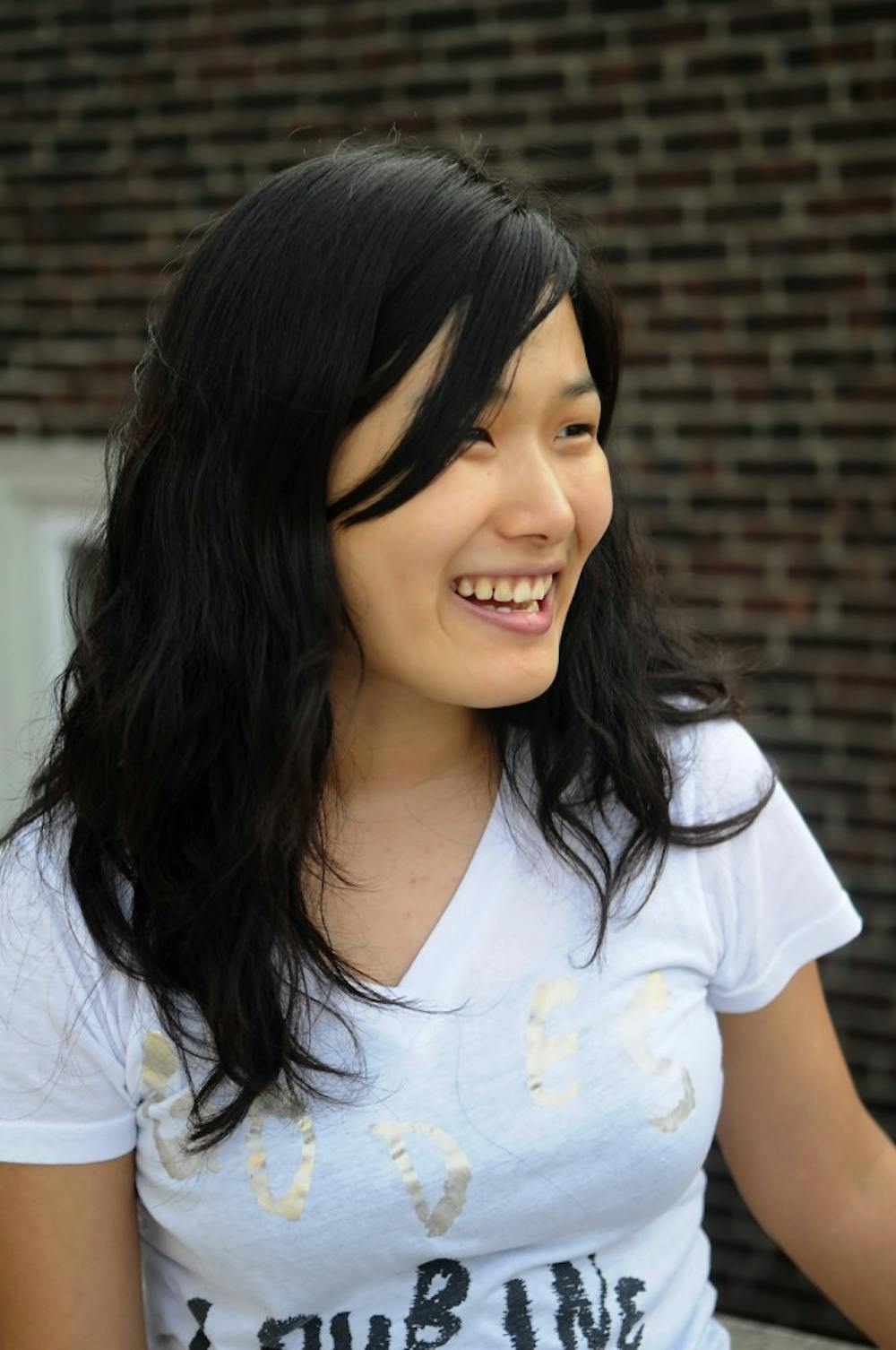
“It was a living hell. I was a nobody. I didn’t know who I was anymore,” Nursing sophomore Elizabeth Park said of the six months she spent suffering from severe depression.
Penn had been Park’s dream school for years, but upon matriculating as a freshman, her sky-high expectations for college life came tumbling down.
Transitioning from high school — where she was involved in various activities, served in leadership roles and graduated summa cum laude — was difficult because she realized she was no longer a top student.
“I thought I was flat-out stupid. I kept doubting myself, and I couldn’t take the pressure or academic load anymore,” Park said.
Simple tasks and decisions such as what to eat or what to wear became impossible for her. Park said she could barely get out of bed on most days.
“I often thought, what is my problem? What is the point of life? And that my life had no future, even though I was just 19,” she said.
Park began seeking help from Counseling and Psychological Services in the November of her freshman year. She was paired with a therapist but refused to take medication.
Park even considered taking an indefinite leave from Penn — a decision that about 100 students make every year due to mental health issues, according to interim director of CAPS Bill Alexander.
Mental Health Week
Last week, Penn hosted its first-ever mental health week to tackle negative stereotypes surrounding mental health on campus. Study breaks, film screenings and workshops exposed students to the resources available at Penn.
The week’s events were hosted by multicultural coalitions, interfaith groups, the Undergraduate Assembly, Greek organizations and CAPS.
Engineering sophomore and organizer Michelle Leong cited collaboration between different groups as one of the main successes of the week.
“Having a wide variety of groups plan different events increased our turnout by a lot,” she said.
Leong hopes the week will increase the likelihood that students who need help will reach out to resources on campus.
CAPS offers personal therapy, meditation groups and workshops for students seeking help. In addition, the University offers CogWell, a group that trains students how to listen to their peers, and Reach-A-Peer Helpline, an anonymous, confidential peer support service.
Although Park is generally satisfied with the available resources, she said “the University can definitely still do more.” Park hopes to see CAPS put more resources and funding into their programming, adding that it sometimes takes up to a month to schedule personal appointments with therapists.
In February of her freshman year, Park finally agreed to take medication to combat her depression and made a recovery in two months. She also received therapy and support from family and friends and joined Mindfulness at Penn, a meditation group focused on reducing stress for students.
“You’re not alone. There’s a lot of help and support out there. I know I was very hard to be around, and it meant a lot to me that my friends stuck around to be there for me,” she said.
The Penn environment
While Park encourages students to seek help when they develop mental health problems, she recognizes that may be difficult to achieve at Penn.
Students at Penn and at other peer institutions are under a lot of pressure to succeed.
“Part of our culture is being put together and knowing what you’re doing with your life,” Park said.
“People at Penn are very type-A, perfectionist people. People are very much career-driven, [and] we sometimes lose sight that we are students,” she said.
Nursing professor Chris Coleman also said external pressures such as the economy and the job market may lead to situational depression among students — depression that is not caused by biological or genetic factors.
However, depression and anxiety are not issues unique to Penn. They are due to an individual’s “psychological makeup in a particular environment.”
“There is a lot of pressure to achieve here, no question, but it’s not the environment that’s causing [depression]. We have just as many people here who strive under the same pressure,” Coleman said.
Beyond the surface
Park wants to raise awareness to show that it is acceptable for students to seek help and admit that they are depressed or anxious.
After recovering from depression in the spring, Park relapsed in the fall of her sophomore year. Although her second episode was not as severe, she felt the familiar hopelessness and anxiety. She began taking medication again and saw a cognitive-behavioral therapist, who encouraged her to erase negative thoughts.
Since then, Park has made another full recovery and wants to raise awareness to show that no one is immune to the symptoms of depression, and it is a problem that lies under the surface of life at Penn. The toll that it can take on suffers is often overlooked, she said.
“Mental health is not something you can see from the outside. It’s not like my arm broke off … people aren’t able to see that my brain isn’t functioning or my thoughts were so disconnected,” Park said.
Park is now the political chair of United Minorities Council and a member of Renewal College Fellowship and has returned to her “passionate and outgoing” self.
Park advises prospective students to come to Penn with an open mind and to remind everyone that failure is normal.
“It’s important to learn how to fail and get back up.,” Park said. “I’m a stronger person after this experience. It was so tough, but I now know that I’m in a better place.”
The Daily Pennsylvanian is an independent, student-run newspaper. Please consider making a donation to support the coverage that shapes the University. Your generosity ensures a future of strong journalism at Penn.
DonatePlease note All comments are eligible for publication in The Daily Pennsylvanian.




